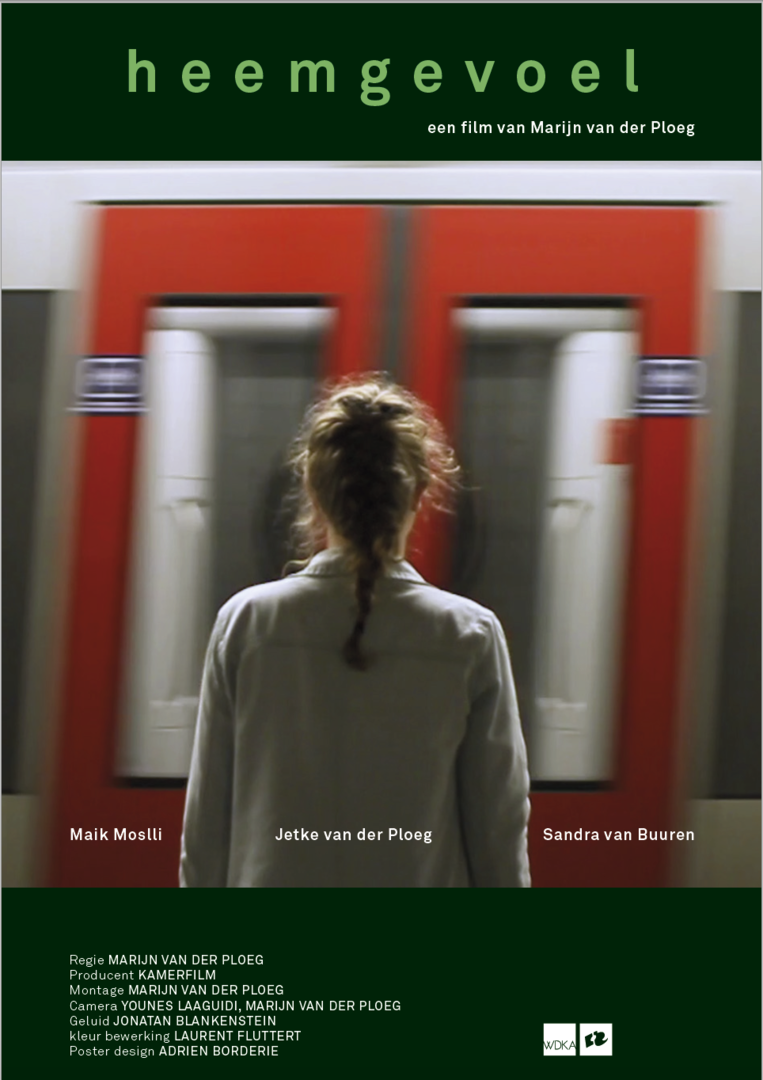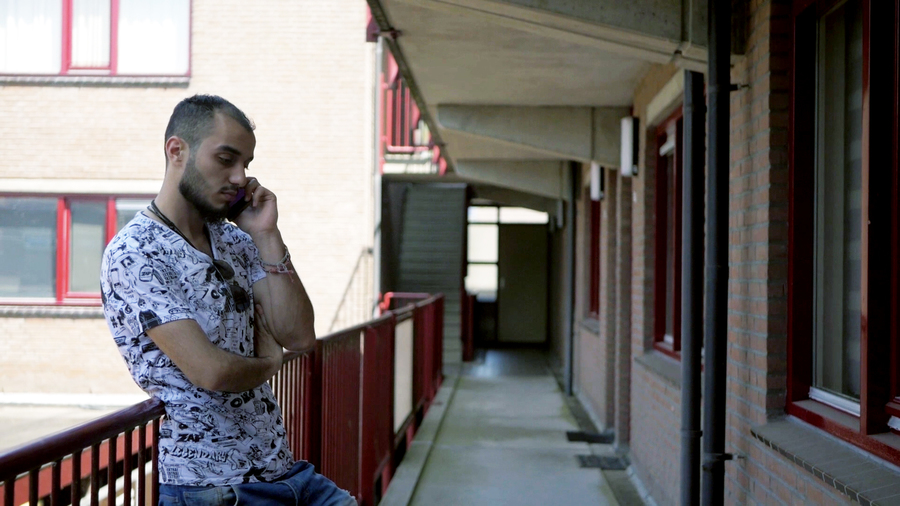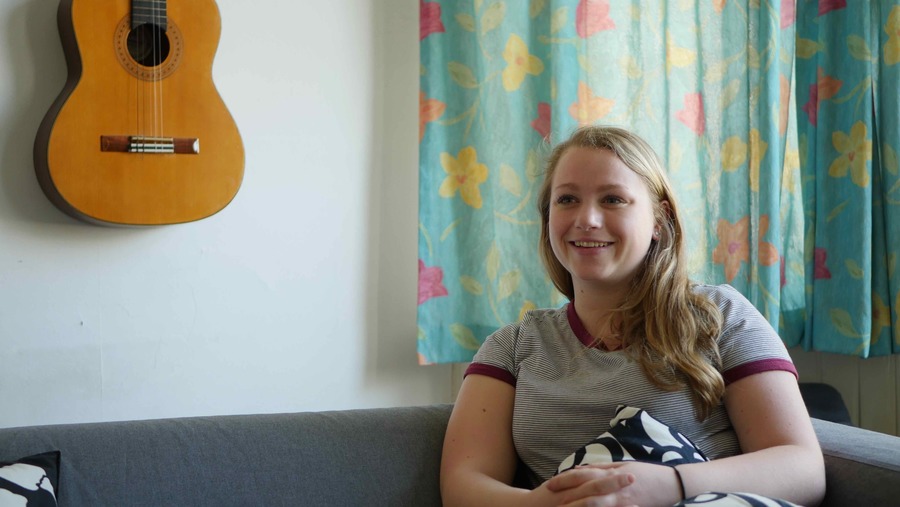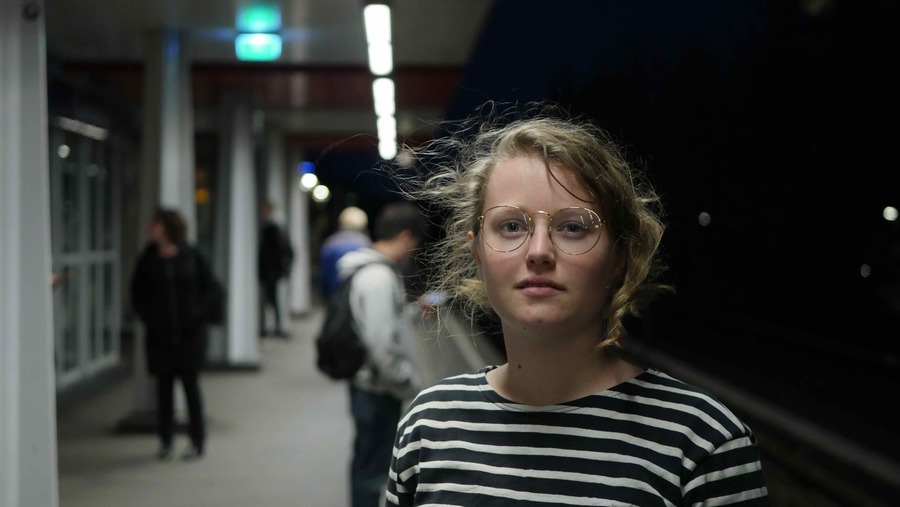Difference between revisions of "Homeliness"
| Line 4: | Line 4: | ||
|Caption=Poster Homeliness by Adrien Borderie | |Caption=Poster Homeliness by Adrien Borderie | ||
|Summary=In a world that becomes more global it seems that the concept of feeling at home is getting more focus in the Netherlands. Dutch politicians are trying to define some kind of generic Dutch emotion of feeling at home and to protect this emotion against newcomers. In my research document I focus on the definition of home with reference to Jan Willem Duyvendak, a socialogist. He argues that feeling at home is not the same as feeling attachment to a place. The feeling of home is connected to identity and Dutch politicians try to respond to this. Through a documentary, I started a search for my own ‘home’ using three other personal stories. With a searching camera and interview questions as a guiding thread. My conclusion is that the emotion of feeling at home is very powerful, it should not be underestimated nor imposed on others. | |Summary=In a world that becomes more global it seems that the concept of feeling at home is getting more focus in the Netherlands. Dutch politicians are trying to define some kind of generic Dutch emotion of feeling at home and to protect this emotion against newcomers. In my research document I focus on the definition of home with reference to Jan Willem Duyvendak, a socialogist. He argues that feeling at home is not the same as feeling attachment to a place. The feeling of home is connected to identity and Dutch politicians try to respond to this. Through a documentary, I started a search for my own ‘home’ using three other personal stories. With a searching camera and interview questions as a guiding thread. My conclusion is that the emotion of feeling at home is very powerful, it should not be underestimated nor imposed on others. | ||
| + | {{#ev:vimeo|276727513}} | ||
[[File:Still Maik.jpg|frame|center]] | [[File:Still Maik.jpg|frame|center]] | ||
| Line 20: | Line 21: | ||
Marijn van der Ploeg(1996) is a filmmaker and producer with a big passion for documentary film. She uses film as a medium to highlight people and bring stories together. She studies Audiovisual Design and Visual Culture and attended the Hounours Programme at the Willem de Kooning Academy in Rotterdam. Her previous films are ‘It’ll be alright I guess’ , ‘Almighty landscape’ and ‘As far as it goes’ which were screened at different festivals i.a. IFFR, Arab Film Festival Rotterdam and Noordelijk Film Festival. Next to directing she started her producing career at the Rotterdam production company Volya Films and recently founded the production company KamerFilm with Esmée van Loon. | Marijn van der Ploeg(1996) is a filmmaker and producer with a big passion for documentary film. She uses film as a medium to highlight people and bring stories together. She studies Audiovisual Design and Visual Culture and attended the Hounours Programme at the Willem de Kooning Academy in Rotterdam. Her previous films are ‘It’ll be alright I guess’ , ‘Almighty landscape’ and ‘As far as it goes’ which were screened at different festivals i.a. IFFR, Arab Film Festival Rotterdam and Noordelijk Film Festival. Next to directing she started her producing career at the Rotterdam production company Volya Films and recently founded the production company KamerFilm with Esmée van Loon. | ||
| − | |||
| − | |||
}} | }} | ||
{{Articles more}} | {{Articles more}} | ||
Revision as of 22:23, 2 July 2018
Contents
SYNOPSIS
One morning I heard water dripping in the bedroom of my apartment. Suddenly I realize that I might have to move again. Something I have done very often in my life and never had any problem with. Thinking I could feel at home anywhere, I expected it to be as usual. But this time my 'home feeling' doesn’t return. I don’t understand why. The stories of Maik, Sandra and Jetke help me searching for the meaning of home. Maik is living in the Netherlands since 3 years after he was forced to leave his home country Syria. What does a new home mean to him? Sandra grew up in the neighborhood Crooswijk and still lives there today. How does she look at her home? My sister Jetke and I shared the same childhood, but to my surprise she has a completely different experience of feeling at home. The more I search, the more intangible and indefinable the feeling of home seems to be. It feels like we are all searching.
“We had the chance to start over completely, without thinking back about it.”
BIOGRAPHY
Links
CONTRIBUTE
Feel free to contribute to Beyond Social.












